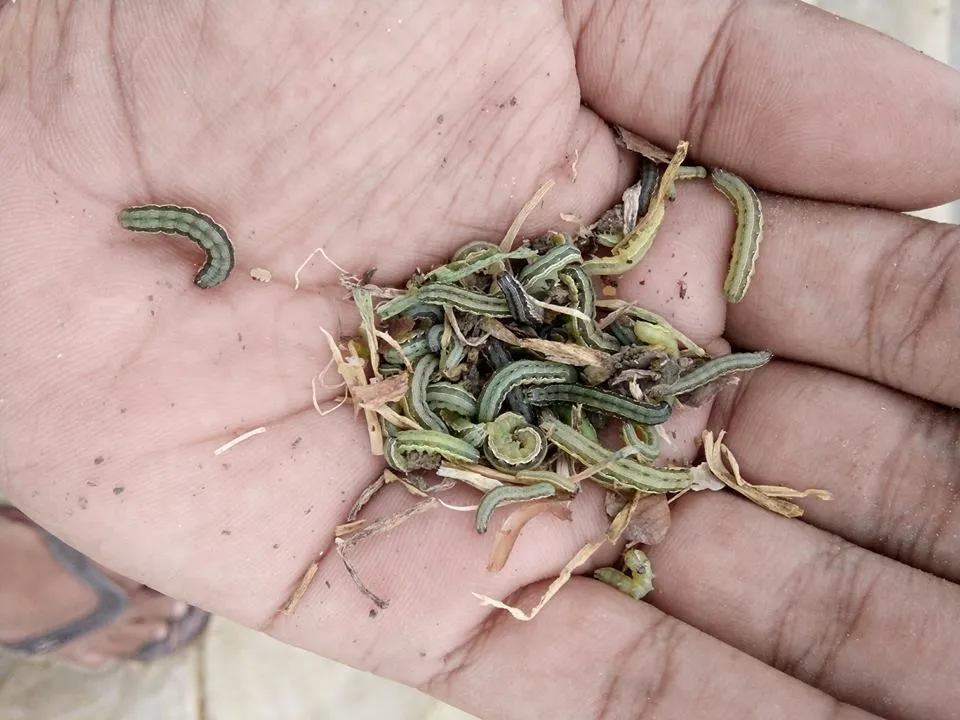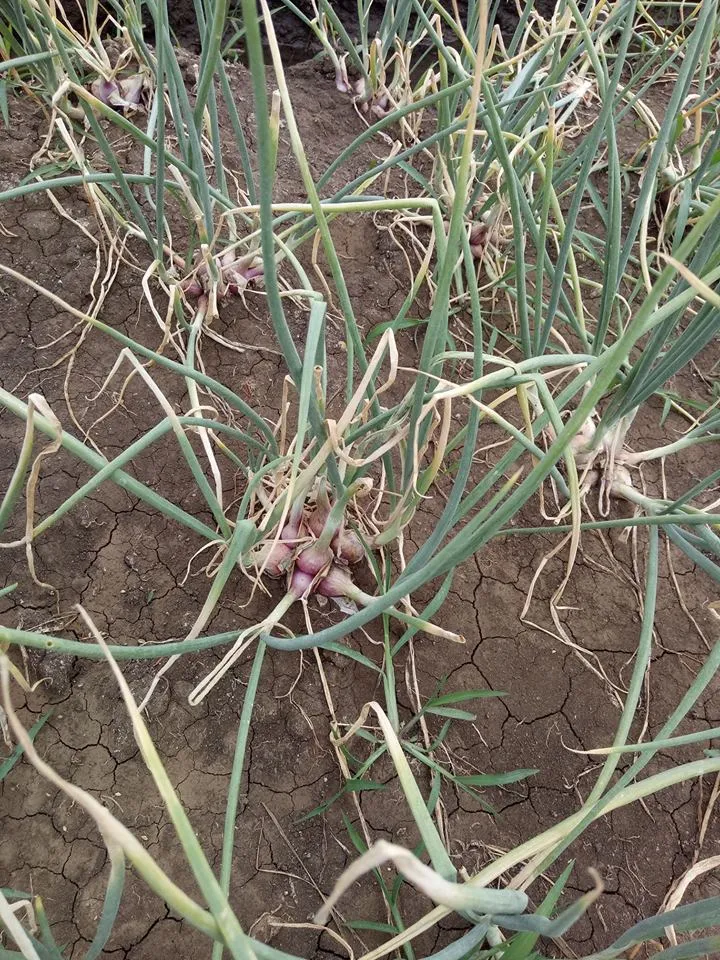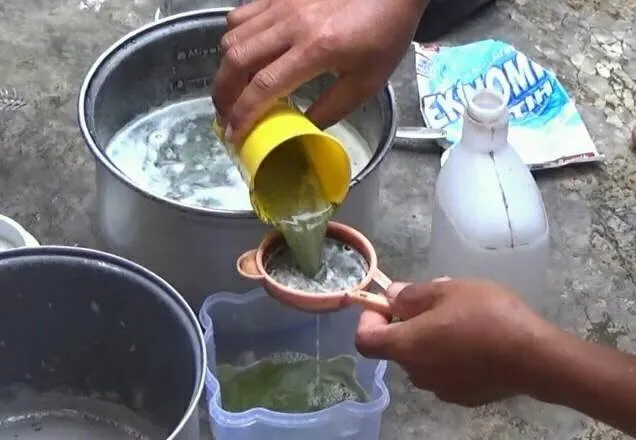Onion is one of the horticultural commodities that have an important role in determining the condition of Indonesia's national economy. These commodities play a role in contributing to the inflation rate, especially when the production declines in certain seasons. One of the causes of the decline in onion production is an uncontrolled attack of pests or diseases.
The onion caterpillar (Spodoptera exigua) is the main pest that commonly damages the onion crop. This pest attack can lead to a reduction in onion production is not small if not done prevention and control efforts. In order to control the caterpillar pests can be done properly, it must be identified first morphology, attack symptoms, host plants, and how to control it.

The Attack Symptoms
Part of the plant is attacked primarily leaves, either leaves on plants that are young or old. After hatching from the eggs, young caterpillars hollow the end of the leaf and then into the leek, so the tip of the leaf appears hollow / cut. The caterpillar will engulf the inner surface of the leaf, while the outer epidermis is abandoned. As a result of the onion leaves look light-translucent or visible white patches, eventually leaves become drooping. Initially the caterpillars gather. After the contents of the leaves run out, the caterpillars soon spread and if the population is large, the caterpillars also eat the bulbs.

Host Plants
Plants catered to caterpillar pests include onion, chives, corn, chili, cotton and bean crops such as peanuts, peas, and soybeans. Therefore it is necessary to note this host plant population in the onion cultivation environment so as not to be a source of pest attacks.
How to Control
Control of caterpillar pests on shallots can be done in various ways, either mechanically, using the device, and chemically if it is needed.
Mechanical
The first control can be done mechanically which aims to kill the pest directly, either by hand or the aid of other tools or materials. Handling by hand, that is, by collecting the eggs on the leeks that show the symptoms of this attack are picked and collected, then destroyed.
With Traps
First, by using sex pheromone traps. Pheromones sex is a chemical compound made synthetically as a medium of communication between male and female insects used to control the caterpillar pests. In 1 ha it takes 12-24 pieces.
Second, the use of light trap / light trap. This trap is designed in such a way simply by working the moth to draw the light with an effective and efficient flame time of 18:00 to 24:00 hours. In one hectare it takes 25-30 units of light trap.
Third, the use of mosquito net / shading net. The use of gauze netting will prevent moths from entering the cultivated area. Mosquito nets are made from special materials that are weather resistant and can be worn up to 6-8 times the growing season.
Fourth, do the trap yellow trap to catch the butterflies flying around the farm so as not to breed.
Chemically
Chemical control is done by insecticide if the observation has reached or at least 1 group of eggs / 10 sample clumps or 5% of leaves attacked / sample clump in dry season. In addition, if 3 groups of eggs / 10 sample clumps or 10% of leaves attack / sample clumps in the rainy season. Chemical control should be done appropriately.
Useable insecticides such as profenofos, betasiflutrin, klorfluazuron, lufenuron, spinosad, and similar effective insecticides. Insecticide spraying is recommended using a flat-nozzle because the spray grains are smoother than the four-hole spuyer holocone and can save insecticide use. Insecticide spraying is recommended in the afternoon because the pest is active at night.
The results showed that the application of chlorfenapyr insecticide 1 l / ha + flufenoxuron 1 l / ha was more effective in suppressing the intensity of plant damage by larvae and showed the highest onion production. While the treatment of insecticides with the active ingredient flufenoxuron 0.5 l / ha + chlorfenapyr 1 l / ha resulted in the highest phytotoxic onion plants.
